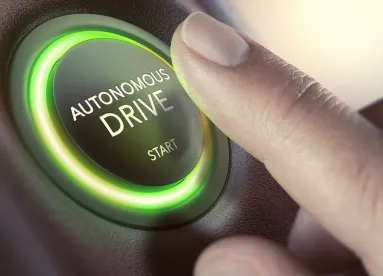Retail chains, grocery stores, and restaurants have been actively developing methods to deliver products faster. With inventions like self-driving cars and drones, it was only a matter of time before delivery services took advantage. But with any new technology comes safety concerns.
Republican Sen. Rick Ward sponsored a new bill to outline how driverless delivery devices are allowed to operate on Louisiana streets. Governor John Bel Edwards signed the bill and it went into effect immediately. With these new laws in place, Louisiana lawmakers hope to keep motorists and pedestrians safe as they share travel alongside self-driving delivery devices.
Self-Driving Technology
Self-driving cars have been in the works since the 1920s. Carnegie Mellon University's Navlab and ALV projects built a computer-controlled vehicle in 1984. Since then autonomous technology has expanded to other devices to serve various markets.
Autonomous Cars
When most people think of self-driving technology, they think of autonomous cars. This type of self-driving machine can go long distances and carry larger cargo. Autonomous cars typically transport people while vans may transport smaller self-driving bots.
Surprisingly, the largest safety risk posed to autonomous cars is human unpredictability. The vehicles are programmed to obey strict safety guidelines along with the rules of the road. In theory, that should be adequate to ensure safety. In reality, these vehicles are bullied by human motorists who drive aggressively.
Drones
The first modern drone was developed in 1935. These small, unmanned aircrafts transformed from military equipment to personal aerial cameras. In June 2021, Kroger became the next company to utilize self-driving devices by launching their first drone flight to deliver groceries.
Airborne drones can fly over traffic jams or obstructions. This would allow them to make deliveries in rural areas that traditional delivery trucks cannot reach. Potential complications arise from privacy issues and Federal Aviation Administration (FAA) regulations.
Last-Mile Bots
Last-mile bots, also known as ground drones, are typically small robots that travel short distances. They may cross streets but otherwise tend to remain on sidewalks as they complete a delivery’s last leg of the journey. These robots are designed to navigate sleep inclines, curbs, and unpaved surfaces.
The biggest limitation of last-mile bots is the size and weight of the deliveries they can carry. Severe weather may also pose challenges. Companies like DoorDash and Postmates successfully use last-mile bots to make multiple short deliveries that delivery drivers typically don’t want to accept.
Louisiana’s New Laws for Self-Driving Delivery Devices
As new technologies emerge, so do new laws to govern their usage. Under Louisiana’s Senate Bill 147, self-driving delivery devices must move at low speeds. They cannot exceed 20 miles per hour. They are limited to 12 miles per hour in pedestrian areas, which is roughly the speed of a person jogging.
These autonomous delivery robots must yield to pedestrians. They cannot obstruct the flow of traffic. They must also be equipped with lights on the front and rear.
The companies utilizing robot delivery must ensure each vehicle carries at least $100,000 insurance coverage. Additionally, these devices are not permitted to transport hazardous materials.
Are Self-Driving Delivery Devices Safe?
Due to the high standards of robotics developers, driverless vehicles are generally safer than cars with human drivers. Safety is paramount, since according to a car accident lawyer in New Orleans, nearly 14% of Louisiana drivers don’t have auto insurance.
Louisiana’s new laws aim to prevent accidents both to motorists and pedestrians. Multiple states have passed similar legislation to protect people sharing space with these vehicles. However, Louisiana’s bill permits governing officials and airport authorities to establish additional laws or ban self-driving delivery devices if they pose a danger to public safety in the future.
Who Is Liable When a Self-Driving Delivery Vehicle Causes an Accident?
At this time, no delivery vehicles that are 100% automated are in use, so there are no laws or regulations to determine who would be liable in an accident. However, if there were an accident involving a self-driving delivery vehicle and it could be proven that the vehicle’s operators were negligent, in theory, they would be legally liable.
There are several ways a company’s negligence could lead to an accident. For example, they could fail to maintain the vehicle or to perform critical software updates. Just as with any other type of vehicle on the road, self-driving delivery vehicles can and will get into accidents. When it happens, expect to see increased regulations and lawsuits.



 />i
/>i

